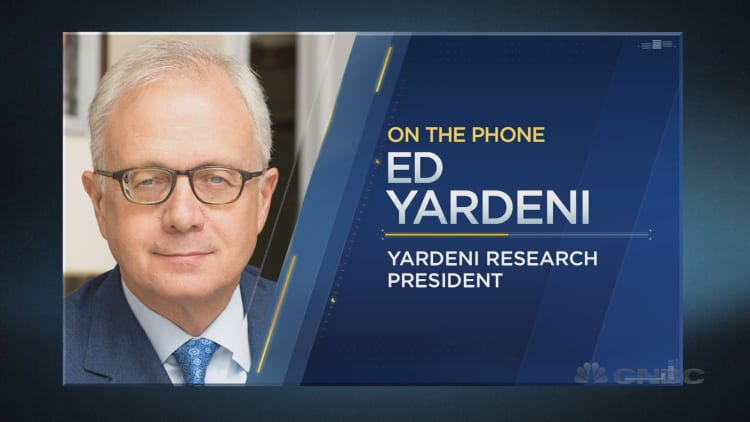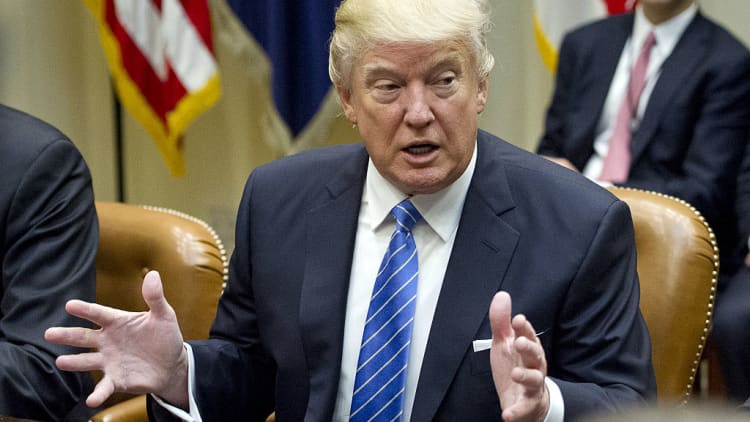


The next recession will likely come two years into President Donald Trump's tenure, according to market strategist Ed Yardeni.
In a new note, Yardeni wrote that he is now more certain about his call, originally published after Election Day.
It's based upon a five-decade analysis of economic recoveries. He argues that since 1965, the past five cycles of economic expansion have averaged 65 months — about 5½ years. The current expansion began in November 2013, and will find its end 65 months later, in March 2019. Such analysis came from coincident economic indicators; in this case, Yardeni isolated recoveries and expansions.
The president of Yardeni Research concedes that he is in fact looking at this timeline as a benchmark, rather than a forecast, based on the evidence from the past five business cycles.
"The question we've addressed is whether the next recession is likely to happen sooner or later than this benchmark, given what we know currently. Since we too were in the slower-growth-for-longer camp prior to Election Day, March 2019 seemed like a reasonably distant time for the start of the next recession. Keep in mind, we first presented this benchmark on March 24, 2015. So far, so good," he wrote in a note published Monday.
Yardeni, who after Election Day raised his real GDP growth rate for this year from 2.5 percent to 3 percent, wrote that if Trump's policies stimulate a spurt of short-term growth, the next recession could actually occur sooner. But for now, he is keeping his eye on 2019.
Trump, in his inaugural speech Friday, struck a protectionist tone in which he emphasized restoring jobs in America and placing "America first."
In an interview Monday on CNBC's "Trading Nation," Yardeni said that leading up to the election, Trump's proposed policies appeared to be pro-growth, and that investors largely dismissed anti-trade rhetoric that surrounded Trump's agenda on the campaign trail. Now that Trump is president, Yardeni said, there's a lot of uncertainty about that, and the market will have to "digest its gains."
Earnings could push the market higher, Yardeni said, adding that it's all about the valuation of earnings, which should grow by 6 percent.
"What we really need, though, is some more clarity about where this administration intends to take fiscal policy and trade policy, most importantly trade policy. If we can sort of overcome the fears of protectionism and find that what Trump really wants to do is get fair trade, which is still free trade, and isn't really intending to have protectionism, I think the market goes higher," Yardeni said.
Stocks slumped Monday, Trump's first full working day in office, and the dollar index hit its lowest level in over six weeks. In a note Monday, BK Asset Management's Boris Schlossberg said that unless the economy soon shows sure-fire improvement, "the enthusiasm that accompanied Mr. Trump into the office will quickly turn into fear as investors begin to consider the costs of his protectionist policies and bare knuckles style of governing."





